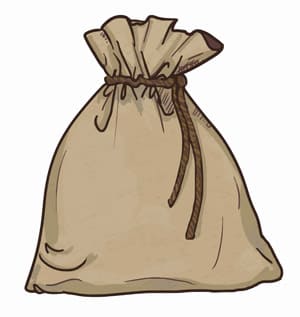Liquid feeds are fast-acting as they provide nutrients in a form that is readily available to plants. Comfrey leaves make a liquid fertilizer high in potassium, good for feeding fruiting plants such as tomatoes and peppers. (Nettles may also be used to a create a general liquid feed using method outlined below.)
The RHS examiners define comfrey tea as: ‘an organic infusion where comfrey leaves are soaked in water and used as a fertiliser/liquid/foliar feed’. ‘Bocking 14’ is the variety most commonly grown for garden use.
Equipment Required:

- A container with a lid and a tap, for example, a water butt.
- A hessian sack or net bag to hold the leaves.
- A weight to weight the sack down, for example, a large stone.
- Clippers or shears to cut the comfrey.
- Thick gloves to prevent scratches.
Harvesting Comfrey
- Cut before the plants flower and set seed.
- Select healthy plants that are free of pests and disease.
- Comfrey leaves can be cut 4 – 5 times a year down to 5cm above ground.
- Plants should be well-grown before cutting (e.g. to 60 cm).
Technique
- Put 900g of leaves into a hessian sack along with a brick or large stone.
- Suspend the leaves and sack in a large volume of water.
- Leave the sack of leaves in the water for up to four weeks.
- Strain/remove sack.
- The remaining liquid tea concentrate can be removed from the water butt via the tap. It needs to be diluted with water before use – 10:1 (water to comfrey).
Application
- Diluted tea can be applied to the root zone of plants – apply to moist soil.
- It can also be used as a foliar feed but should be applied in dull weather to avoid leaf scorch.
